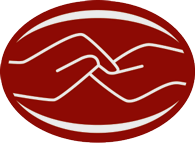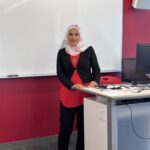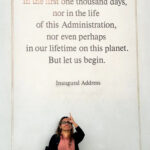By Aswathy Rachel Varughese, India
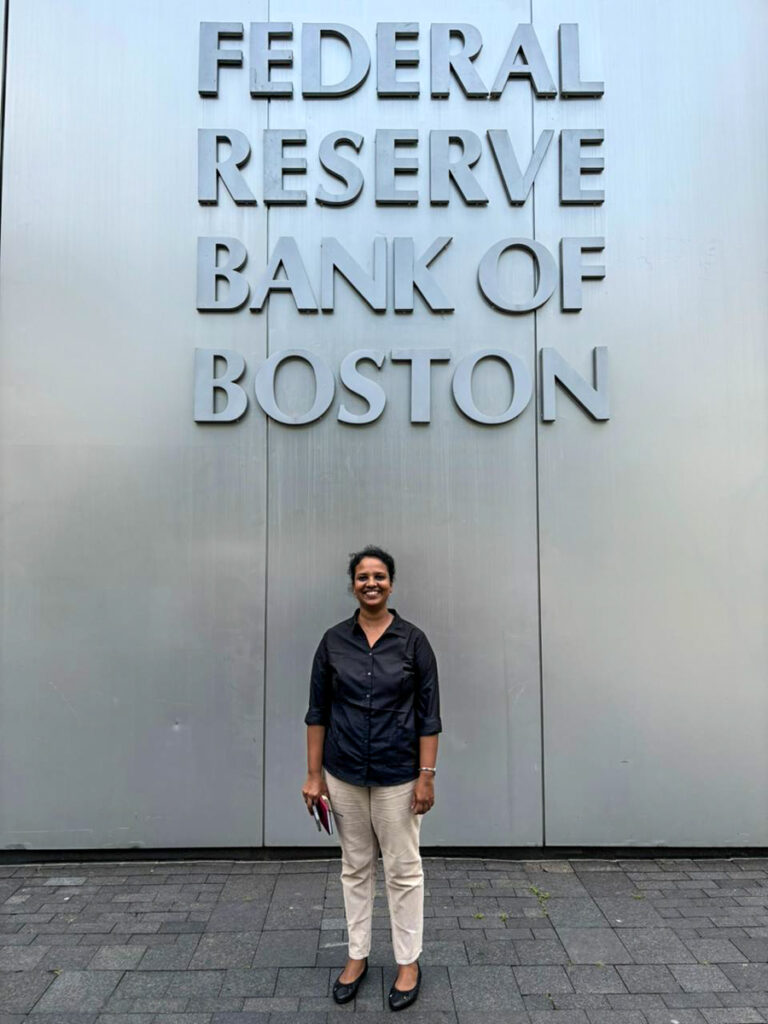
Participating in the Study of the U.S. Institutes (SUSI) Scholars program sponsored by the Bureau of Educational and Cultural Affairs (ECA) at the U.S. Department of State, has truly been an eye-opening experience. As my first major international venture, it has offered a unique opportunity to engage with scholars and academics from 18 different countries, augmenting my global perspective in several ways I had never would imagined.
Academic exposure
The program’s intentional design perfectly blends academic enrichment with cultural engagement. Our visit to the Federal Reserve Bank of Boston was particularly fascinating for me, given my background as a former economist in an Indian public sector bank. The interaction with economist there provided invaluable insights into US monetary policy. I enjoyed the discussion on banking system liquidity conditions across the globe and the reference papers we used for this research. Equally impactful were our sessions at prestigious institutions like the Massachusetts Institute of Technology (MIT) and Harvard Business School. MIT has a huge Indian presence and notably the former Reserve Bank of India (RBI) governor, Dr. Raghuram Rajan, is an esteemed alumnus of MIT. Addtionally, the Indian Nobel laureate in Economics, Prof. Abhijit Banerjee and his wife Prof. Estelle Duflo are faculty members at the faculty of economics at MIT. Intriguingly I found one PhD Scholar from India who carries my son’s name, Advik. All these are treasured memories of the campus. I met some Indian scholars and students there and shared some thoughts on our visits and the program.
The discussion at Harvard, about the Kenyan economy and Silicon Valley was insightful from various perspectives. Professor Marlous van Weijinberg delivered a well-structured session and the professor followed an interesting methodology employed by the esteemed business school. Consolidating the points raised by the students on a particular case study and connecting it with the theoretical underpinnings was incredible. Assessing students’ participation in each session was also a piece of fresh information and experience for me. These experiences, once only dreams glimpsing through website pages, became tangible realities that inspired me to potentially reshape the pedagogical approaches used in my home institution.
The visit to the New Bedford port provided an enriching experience, particularly the insights gained from the museum’s focus on the fishing community. New Bedford Port Authority officials shared valuable information about economic development and effective port management. Notably, discussions also touched upon offshore wind energy, a critical component for strengthening the blue economy. Activities related to aquaculture and sustainability play a pivotal role in countries aiming for port development and employment generation. Personally, I am keen on engaging in extended conversations with officials, given that my home state, Kerala, India, has an international port—Vizhinjam port. Furthermore, our coastal location positions us well for blue economy development due to our extensive coastline. At my home institute, Gulati Institute of Finance and Taxation, Kerala, we aim to study about the economic potentials of the port development and exploring revenue potential for our state. In that way, it seems to be a potential opportunity for collaboration and consultancy.
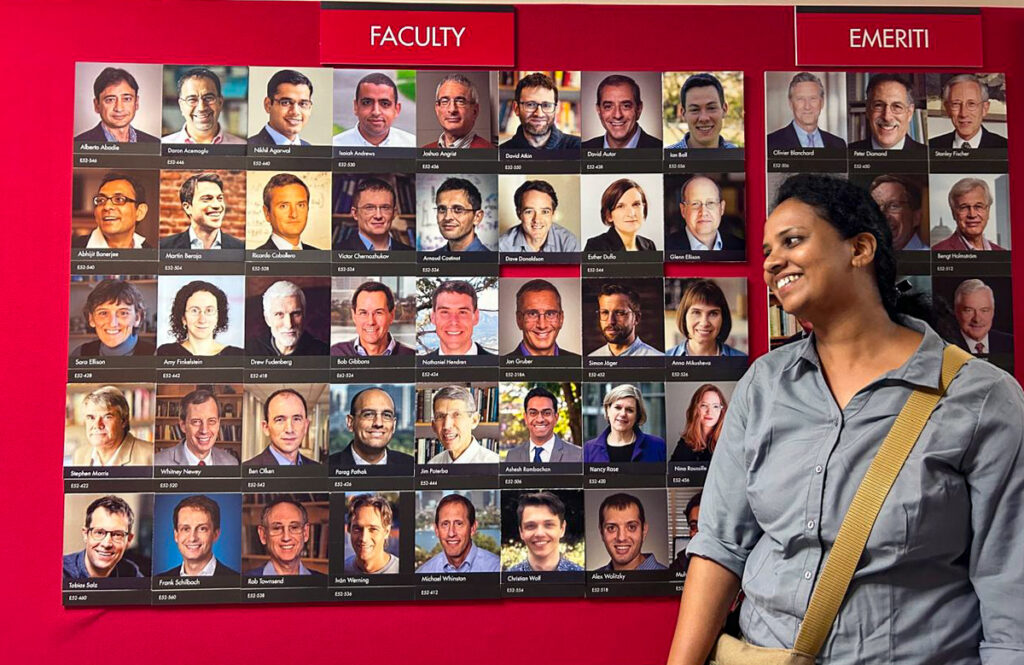
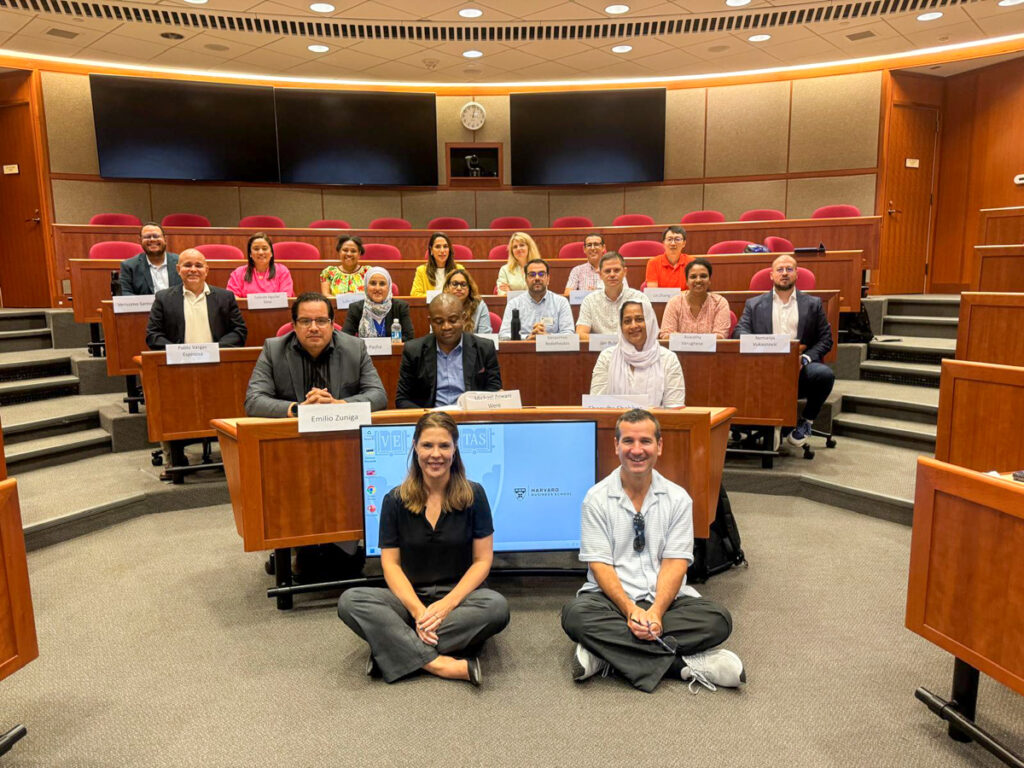
The additional academic sessions were equally rewarding, providing insights into how scholars approach topics and conduct scientific research. It’s fascinating to witness the rigorous methods and intellectual curiosity that drive academic exploration especially on US electoral politics and education system in the US.
Cultural engagements
Beyond the academic engagements, the program has provided a deeper insight into American culture and history. Exploring Boston, a city rich in historical significance, was a daily adventure. From the travel through the Freedom Trail to visiting churches and other landmarks, each experience enhanced my understanding of American society, history, culture, economy and ecology. The John F. Kennedy Library and Museum was a highlight, offering not just an understanding of the US politics but also its political and diplomatic connections to India, such as JFK’s meetings with Jawaharlal Nehru and Indira Gandhi.
A visit to the Museum of Fine Arts exposed us to a vast array of global artistic traditions. It was a marvelous experience which spoke about the history and culture of continents. I was particularly struck by the diverse representations of Buddha and the Buddhist culture from various Asian cultures and the rich display of African art, which was a novel experience for me. Besides, I particularly enjoyed the representation of Greek mythological figures in the museum. The visit to the public library and Harvard Museum was rewarding in terms of learning about the culture and history.
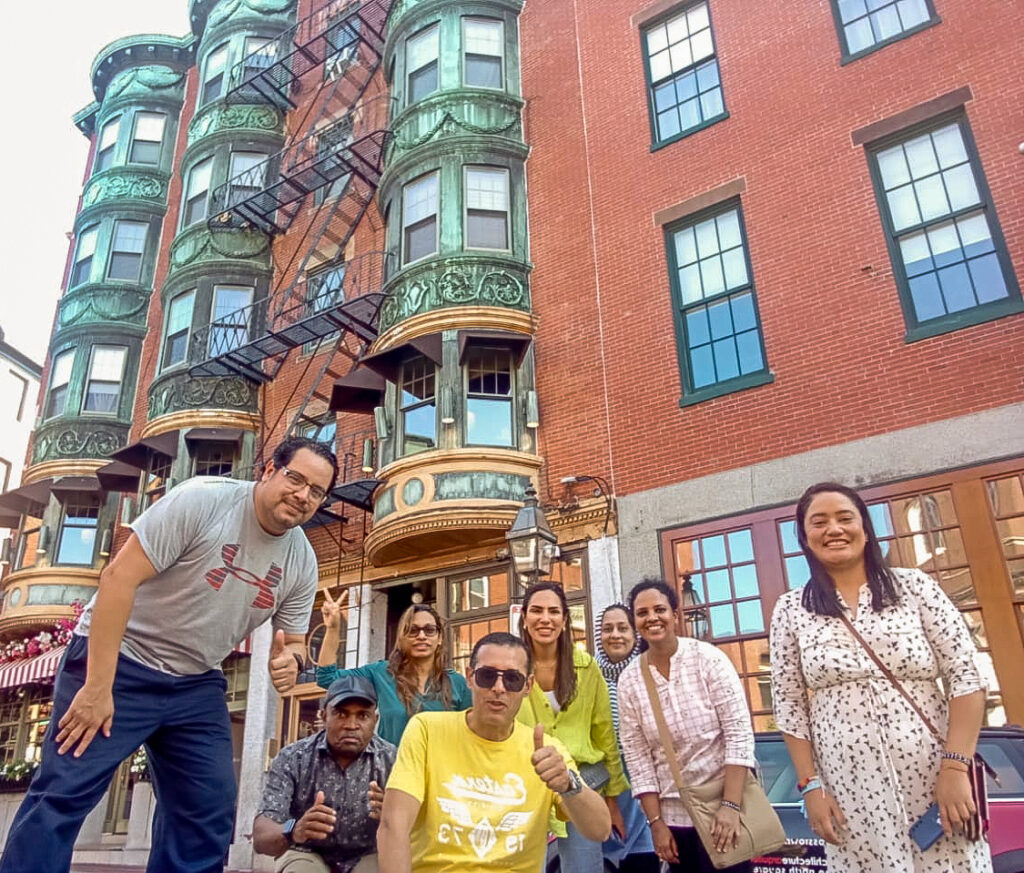
The natural environment and urban ecology also played a significant role in our experience. A whale-watching trip in the North Atlantic left me mesmerized, while Boston’s commitment to preserving its urban ecosystem impressed me deeply. The transformation of the once-polluted Charles River into one of the cleanest urban waterways is a testament to this dedication. The volunteering service at Arlington Church was another unique experience for me. Serving the homeless population made me contemplate the grave realities of society and reinforced the need to be sensitive to the surroundings.
Perhaps the most valuable aspect of the program has been the opportunity for global networking and personal growth. It’s truly heartwarming that I share close friendships with fellow scholars. I cherish these connections and they are a testament to the power of learning, collaboration and true friendship. Interacting with scholars from around the world has exposed me to diverse communication styles, etiquettes, and research interests.
This program has not only enhanced my knowledge and research perspectives, but has also reshaped my approach to global communication and collaboration. This journey has been truly transformative, equipping me with new insights and connections that I am eager to apply in my academic career and share with my home institution. I am deeply grateful to SUSI, ITD, my fellow scholars, my home country and the institute that I am representing, for this memorable experience.
All opinions expressed by the program participants are their own and do not represent nor reflect official views from the Bureau of Educational and Cultural Affairs of the U.S. Department of State, or of the Institute for Training and Development, Inc.
